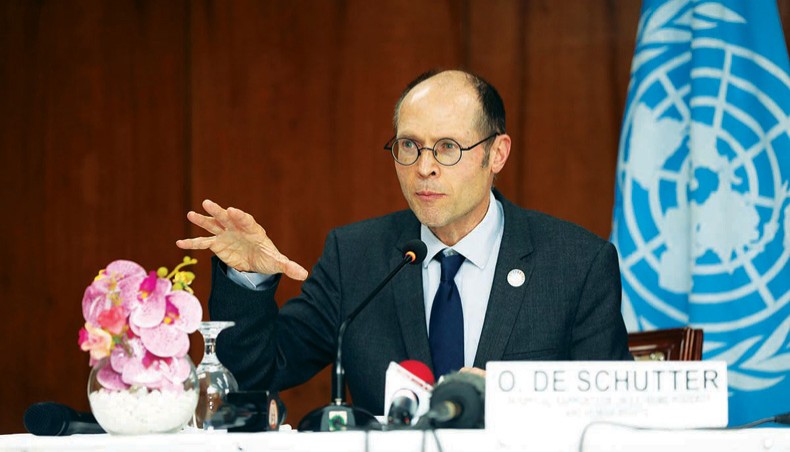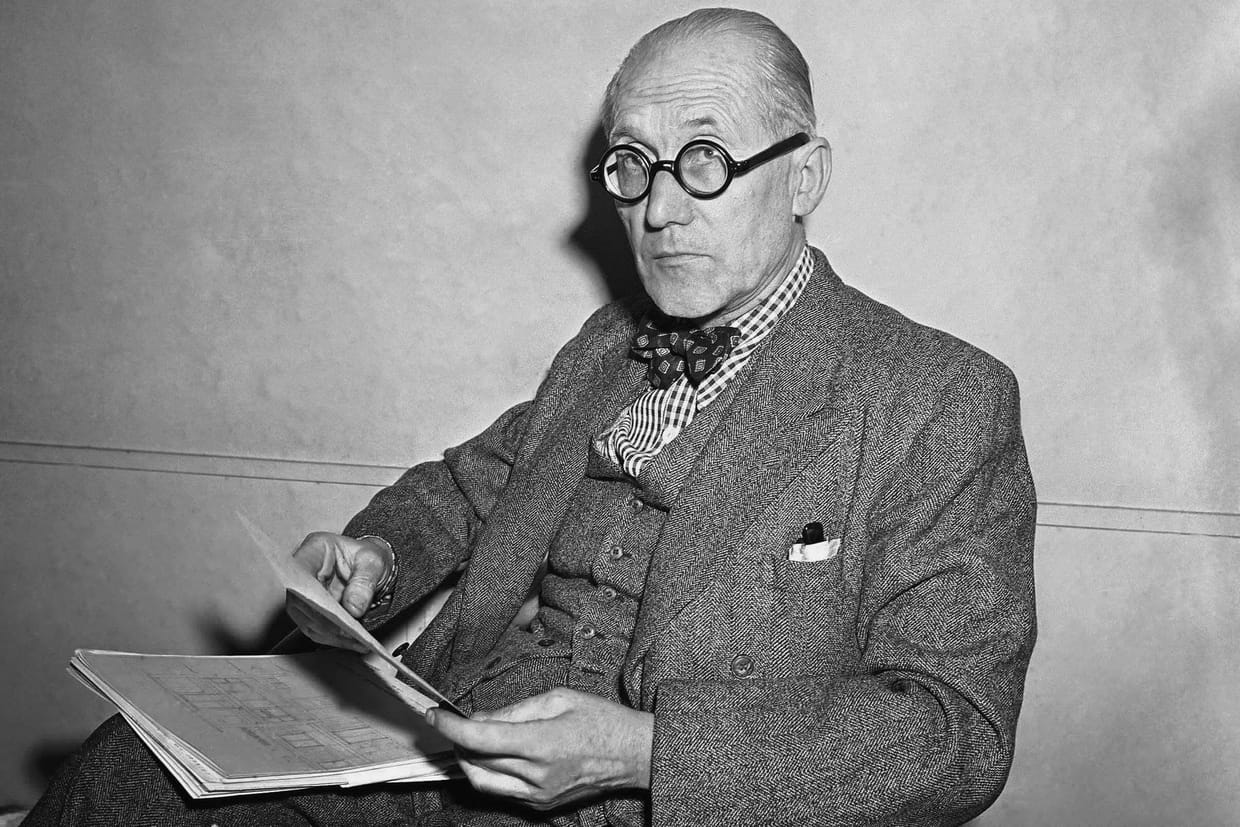Bilal9
ELITE MEMBER

- Joined
- Feb 4, 2014
- Messages
- 26,569
- Reaction score
- 9
- Country
- Location
Staff Correspondent | Published: 22:24, May 29,2023

United Nation’s special rapporteur on extreme poverty and human rights Olivier De Schutter speaks at a press conference held at the Sonargaon Hotel in the capital Dhaka on Monday. — New Age photo
The United Nation’s special rapporteur on extreme poverty and human rights, Olivier De Schutter, on Monday said that Bangladesh should move away from its reliance on cheap labour to ensure a rights-based development following its graduation from the least developed country status.
Bangladesh’s development has largely been driven by one export sector – the readymade garment industry – which is highly dependent on keeping wages low, he said at a press conference held at the Sonargaon Hotel in Dhaka.
‘A country’s comparative advantage cannot lie in keeping its people poor,’ the UN rapporteur said at the end of a 12-day visit to the country.
During his visit, the UN expert travelled throughout the country and met with people living in poverty.
He noted that while Bangladesh has made a remarkable progress in reducing the overall income poverty, multidimensional poverty remains high and income inequality has increased, particularly in urban areas.
Olivier said that overall economic progress was uneven, with groups such as national minorities, dalit, bede, transgender and religious and linguistic minorities such as the left-out Biharis.
He said that income inequality was rising in Bangladesh and the government recognised the need to reduce inequality in the eighth five-year plan.
‘Inequality is not a necessary consequence of development. And the more general economic progress is equally spread, the faster poverty will be eradicated,’ the special rapporteur said.
‘This is why, beyond seeking to stimulate economic growth, the government should focus on strengthening the resilience of households to shocks. And this is why wealth inequality, and not only income inequality, should be addressed.’ Olivier said at his mission-end statement.
The RMG sector accounted for 82 per cent of Bangladesh’s export revenues, and employed more than four million workers in 2022 and the success of Bangladesh in this sector could inspire other sectors of the economy as the country seeks to diversify its exports, he said.
Yet, this success should not be at the expense of workers’ rights, particularly of the right to a fair remuneration and of union rights, addressed respectively in articles 7 and 8 of the International Covenant on Economic, Social and Cultural Rights, he said.
Olivier said that after the Rana Plaza building collapse in 2013, the safety standards in the readymade garment sector in Bangladesh improved significantly, but little progress was made in improving wage standards.
As per the CESCR, all workers have a right to a remuneration which provides them, as a minimum, with fair wages and a decent living for themselves and their families, the UN special rapporteur said.
‘Yet, in the absence of union rights (including rights to collective bargaining) in Bangladesh, unions are unable to negotiate an adequate remuneration, and the level of the minimum wage as set by the minimum wage board primarily seeks to preserve the competitiveness of the Bangladeshi RMG export sector,’ Olivier said.
He said that the last revision of the minimum wage in the RMG industry took place in 2018, when it was set at Tk 8,000 per month and the amount appeared widely insufficient to ensure an adequate standard of living to the workers in the RMG sector.
Citing an Asia Floor Wage Alliance study, the UN rapporteur said that a working person in Bangladesh should earn at least Tk 51,994.51 monthly to be able to support a family.
He said that the international brands were overwhelmingly responsible for this situation as their buying policies had systematically led factory owners in Bangladesh to cut down on expenses, in particular on wages, or to rely on sub-contractors imposing sub-standard working conditions, in order to stay in business.
In the interest of their own reputation, the international brands must accept their responsibilities in this regard, and support both higher wages and a better respect for union rights, he said.
The special rapporteur said that the right to form and join unions and collective bargaining should also be allowed in EPZs.
Olivier urged the government to use its upcoming graduation from LDC status in 2026 as an opportunity to rethink its reliance on the RMG industry.
‘As Bangladesh moves towards graduation, it continues to focus much of its energy on providing tax incentives to international investors and establishing special economic zones,’ he said.
The special rapporteur said that Bangladesh should strengthen its domestic resource mobilisation by moving towards a progressive tax regime and the tax incentives provided to attract foreign direct investment must be rationalised to avoid their arbitrary use by conducting a regular cost-benefit analysis.
He also said that concrete steps should be taken to plug revenue lost through trade and customs miss-invoicing, saying that between 2008 to 2018, Bangladesh on average lost $8.27 billion of revenues as a result of mis-pricing the declared value of imports and exports.
The special rapporteur said that social protection should be reformed and the various schemes streamlined and rationalised, in order to guarantee an adequate level of protection and to expand coverage.
-------------------------------------------------------------------------------------------------------------------------------------------
Bilal's side note.....
My Lord this UN rapporteur guy is a dead ringer for French Architect Le Corbusier....these pictures and the building he designed are from the 1920's. Just brilliant. OK back to regular topic.
Don't agree with UN prescriptions. Low wage industry cannot be stopped just because the UN prescribes. Rather the EU countries should ask their companies like H&M to start paying Bangladesh apparel companies fair buying rates for apparel who in turn can pay living wages to their workers.




Last edited:
